Navigating the world of skincare can be a challenge, especially for teens who are just starting to build their routines. Moisturizing is a crucial step, providing hydration to support the skin’s natural barrier. With so many options, it’s essential to find a moisturizer that addresses the unique needs of teenage skin, which often includes managing oiliness or breakouts while providing adequate hydration.
Here’s a comprehensive guide to the 7 best moisturizers for teens, complete with a table for quick reference.
7 Best Moisturizers for Teens
| Product Name | Skin Type | Key Ingredients | Price Range |
|---|---|---|---|
| Pure Hydration | All | Hyaluronic Acid, Glycerin | $ |
| Clear Skin Quench | Oily/Combo | Salicylic Acid, Green Tea | $$ |
| Gentle Soothe | Sensitive | Aloe Vera, Chamomile | $ |
| Matte Finish Daily | Oily | Niacinamide, Zinc PCA | $$ |
| Radiant Glow | Dry | Shea Butter, Vitamin E | $$ |
| Acne Defense Lotion | Acne-Prone | Benzoyl Peroxide, Witch Hazel | $$$ |
| EcoBalance Cream | All | Squalane, Tea Tree Oil | $$ |
1. Pure Hydration – Best Overall Moisturizer
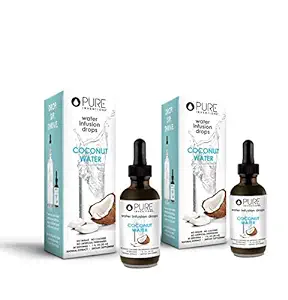
Pure Hydration is an all-rounder that provides necessary moisture without any heavy or greasy feel, making it suitable for all skin types. It harnesses hyaluronic acid and glycerin to attract and lock in moisture.
Price Range: $
2. Clear Skin Quench – Best for Oily/Combination Skin
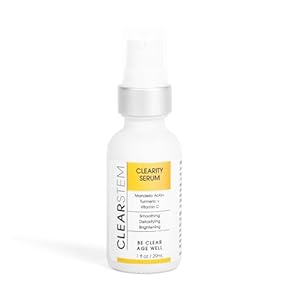
Specially formulated for oily and combination skin, Clear Skin Quench offers a dual action of hydration and oil control. It contains salicylic acid to help clear pores and green tea for its antioxidant properties.
Price Range: $$
3. Gentle Soothe – Best for Sensitive Skin
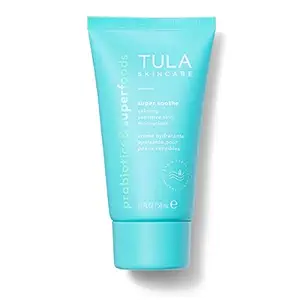
Gentle Soothe is a godsend for sensitive skin with its calming formula featuring aloe vera and chamomile, known for their soothing properties.
Price Range: $
4. Matte Finish Daily – Best for a Non-Greasy Look
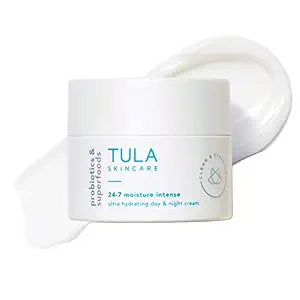
For teens who dislike the shine that some moisturizers leave behind, Matte Finish Daily is the answer. Niacinamide and zinc PCA work together to mattify the skin while providing hydration.
Price Range: $$
5. Radiant Glow – Best for Dry Skin
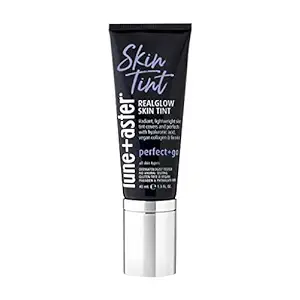
Dry skin requires extra care, and Radiant Glow delivers with shea butter and vitamin E, which are emollients that help to nourish and protect the skin barrier.
Price Range: $$
6. Acne Defense Lotion – Best for Acne-Prone Skin
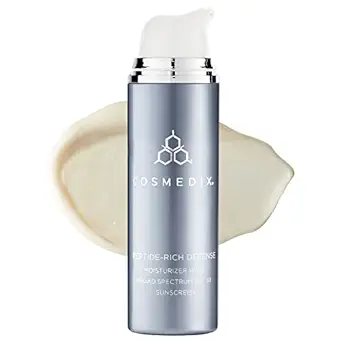
Acne Defense Lotion is targeted for acne-prone skin, with benzoyl peroxide to combat acne-causing bacteria and witch hazel to reduce inflammation.
Price Range: $$$
7. EcoBalance Cream – Best Eco-Friendly Option

For the environmentally conscious teen, EcoBalance Cream is a great pick. It’s formulated with sustainably sourced squalane and tea tree oil, offering a balanced and eco-friendly skincare option.
Price Range: $$
Important Notes:
- “Always patch test a new moisturizer before applying it to your entire face to ensure there are no adverse reactions.”
- “For teens with acne-prone skin, it’s important to choose non-comedogenic products that won’t clog pores.”
- “Hydration is key, even for oily skin types, to prevent the overproduction of oil that can occur when the skin is dehydrated.”
Certainly! Here are some frequently asked questions (FAQs) about moisturizers for teens, addressing common concerns and curiosities:
FAQs: Moisturizer for Teens
Q: Why do teens need to use a moisturizer?
A: Teen skin is often prone to hormonal changes that can affect its moisture balance. Using a moisturizer helps to maintain hydration, which is crucial for skin health and can help to prevent issues like dryness or excessive oiliness.
Q: Can using a moisturizer cause acne?
A: Not all moisturizers cause acne. Non-comedogenic moisturizers are specifically formulated to not clog pores. It’s important for teens to choose products suitable for their skin type, especially if they are prone to acne.
Q: How often should a teen use moisturizer?
A: Teens should moisturize twice daily after cleansing their face in the morning and before bed. It helps to keep the skin hydrated and can prevent the overproduction of oil.
Q: Are there moisturizers for different teen skin types?
A: Yes, there are moisturizers formulated for various skin types, including oily, dry, combination, sensitive, and acne-prone skin. Teens should choose a product that aligns with their specific skin concerns.
Q: What ingredients should teens look for in a moisturizer?
A: Hydrating ingredients like hyaluronic acid and glycerin are great for all skin types. For acne-prone skin, look for salicylic acid or benzoyl peroxide. For dry skin, ingredients like shea butter and squalane are beneficial.
Q: Can boys use the same moisturizers as girls?
A: Absolutely. Skin type, not gender, should be the deciding factor when choosing a moisturizer. Both boys and girls can use the same products if the ingredients are suitable for their skin concerns.
Q: Are expensive moisturizers better than affordable ones?
A: Not necessarily. The effectiveness of a moisturizer is based on its ingredients and formulation, not its price. There are many high-quality, affordable moisturizers available that are suitable for teen skin.
Q: How do you apply moisturizer correctly?
A: After cleansing, apply a pea-sized amount of moisturizer to your face. Gently massage it into your skin using upward strokes until it’s fully absorbed. Avoid pulling or stretching the skin.
Q: What’s the difference between day and night moisturizers?
A: Day moisturizers are typically lighter and may contain SPF to protect against sun damage. Night moisturizers are often richer and may contain ingredients that support skin repair while you sleep.
Q: Can moisturizers be used with other skincare products?
A: Yes, moisturizers can be part of a broader skincare routine. They should be applied after water-based products like toners or serums and before sunscreen in the morning.
Q: Is it okay to use body lotion on the face?
A: It’s not recommended as body lotions may contain fragrances or ingredients that can be too harsh for the delicate skin on the face and may lead to breakouts or irritation.
Q: What should teens do if they have an allergic reaction to a moisturizer?
A: Stop using the product immediately and wash the area with water. Consult a dermatologist if the reaction persists or if there are severe symptoms like swelling or difficulty breathing.
Conclusion
Selecting the right moisturizer is essential for maintaining healthy skin. For teens, it’s about balancing moisture with the need to address common skin concerns like oiliness or sensitivity. The products listed above cater to a range of needs and preferences, ensuring that there’s something for everyone. Remember, skincare is personal, and what works for one person may not work for another. It’s all about finding the right fit for your skin type and concerns.